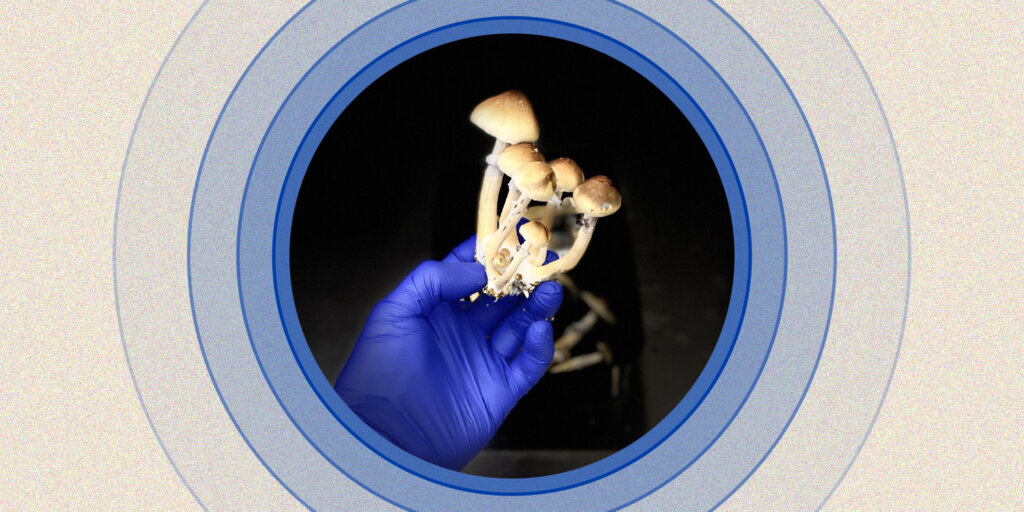Home » The Potential of Microdosing Psychedelics to Transform Mental Health Treatment
The Potential of Microdosing Psychedelics to Transform Mental Health Treatment

Two Toronto-based startups, Diamond Therapeutics and GoodCap Pharmaceuticals, are pioneering the development of psilocybin-based medications aimed at expanding treatment options for mental health. The focus of their research is on sub-perceptual doses of psilocybin—the active compound in magic mushrooms—which may offer therapeutic benefits without the psychoactive effects typically associated with higher doses. This emerging field is gaining attention as mental health crises worsen in Canada, leaving many patients dissatisfied with current treatment methods, especially since around 30% of individuals do not respond to conventional antidepressants like SSRIs.
The use of psychedelics in therapeutic settings has historically been controversial, primarily due to the intense and often disorienting experiences they can induce. However, the last decade has seen an increase in interest in microdosing—taking sub-threshold doses that do not produce noticeable alterations in consciousness. Ignited by a shift in public perception following the legalization of cannabis in Canada in 2018, Judy Blumstock founded Diamond Therapeutics to explore these possibilities, aiming to harness the benefits of psychedelics while minimizing the risks associated with their use.
Blumstock emphasizes the goal of unlocking the therapeutic potential without the hallucinogenic experience, which can often be both daunting and time-consuming for patients. High-dose therapies generally require the integration of psychotherapy, complicating the assessment of the pure effects of the substance, particularly since most psychedelics remain classified as illegal. By focusing on sub-perceptual doses, Diamond Therapeutics aims to pave the way for a new category of medications that can be broadly accessible and devoid of the prohibitive stigma associated with traditional psychedelics.
GoodCap, co-founded by Darryl Hudson, leverages research in both psilocybin and anti-inflammatory treatments to provide insights into their application for conditions like PTSD. Drawing from the experiences of military veterans who experimented with lower doses and reported benefits, Hudson highlights the potential of psilocybin to address symptoms by influencing serotonin receptors and reducing inflammation linked to stress responses. His approach is based on the understanding that persistent traumatic stress can lead to an inflammatory state, where psilocybin may play a role in alleviating symptoms without addressing the root trauma.
Both companies are planning clinical trials to affirm the safety and efficacy of their drugs. Diamond Therapeutics’ phase two trial will investigate very low doses in humans, while GoodCap anticipates starting phase one trials soon. Their timelines project a potential market entry for psilocybin pharmaceuticals within the next five to seven years, contingent on successful trial results and regulatory approvals from Health Canada.
The demand for effective mental health treatments is validated by research indicating that millions of Canadians are impacted by mental illness, with significant gaps in current therapies. Experts like Norman Farb from the University of Toronto acknowledge the need for alternatives and are optimistic about the possibilities that microdosing may provide, emphasizing the necessity for additional research to validate claims and assess the risk-benefit ratio adequately.
Ultimately, both Diamond and GoodCap represent a growing movement advocating for innovative approaches to mental health treatment, focusing on the emerging power of psychedelics in a more controlled and medically-grounded context. Their efforts reflect a broader trend toward exploring previously stigmatized substances as potentially pivotal tools in addressing persistent mental health challenges.
MaRS Discovery District
https://www.marsdd.com/
MaRS is the world's largest urban innovation hub in Toronto that supports startups in the health, cleantech, fintech, and enterprise sectors. When MaRS opened in 2005 this concept of urban innovation was an untested theory. Today, it’s reshaping cities around the world. MaRS has been at the forefront of a wave of change that extends from Melbourne to Amsterdam and runs through San Francisco, London, Medellín, Los Angeles, Paris and New York. These global cities are now striving to create what we have in Toronto: a dense innovation district that co-locates universities, startups, corporates and investors. In this increasingly competitive landscape, scale matters more than ever – the best talent is attracted to the brightest innovation hotspots.


